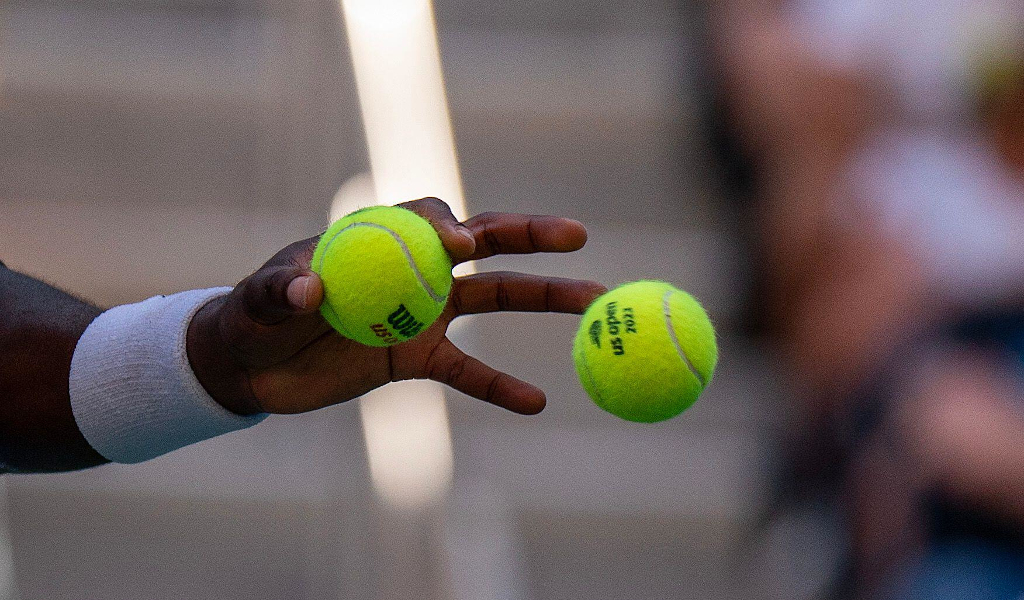<!–
–>

The International Tennis Integrity Unit have been busier than it might have wanted to be over the course of 2023 and now another player has been handed a long ban.
Brazilian player Victor Bini has been suspended from the sport for a period of 13 months following a breach of the Tennis Anti-Doping Programme (TADP).
On 26 April 2023 at an M15 tournament event in Brazil, 20-year-old Bini provided an in-competition urine sample, which was found to contain metabolites of clomiphene. Clomiphene – an anti-estrogenic substance – is prohibited at all times under Section S4 of the World Anti-Doping Agency (WADA) Prohibited List.
Bini, who has a career-high ATP singles ranking of 1631, admitted the anti-doping rule violation (ADRV), and provided evidence that the source of the clomiphene was a contaminated bespoke supplement produced in Brazil. Further submissions from the player, including photographs taken of the supplement in the months prior to testing positive for clomiphene, and a timeline of its use, were also received by the ITIA.
The ITIA consulted with the WADA-accredited laboratory in Montreal, which confirmed that the positive result was consistent with Bini’s argument of a contaminated supplement.
Given the circumstances of the case, the ITIA accepted that it was more likely than not that the bespoke supplement was the source of the clomiphene found in the player’s system.
The TADP mandates that a four-year suspension is imposed if the ADRV is intentional, and two years for unintentional cases, with further reductions possible depending on the player’s degree of fault or negligence.
In this case, the ITIA accepted that the violation was not intentional and that the player bore no significant fault or negligence for that violation. The ITIA proposed, and Bini accepted, a 13-month period of ineligibility.
Clomiphene is considered a specified substance and, therefore does not carry a mandatory provisional suspension and as the player did not elect to take a voluntary provisional suspension, Bini’s period of ineligibility runs from 3 October 2023 until midnight of 2 November 2024.
READ MORE: Martina Navratilova offers her backing to suspended Simona Halep
During this time, the player is prohibited from playing in, coaching at, or attending any tennis event authorised or sanctioned by the tennis members of the ITIA: ATP, ITF, WTA, Australian Open, Roland Garros, Wimbledon and US Open.
The ITIA is an independent body established by its tennis members to promote, encourage, enhance and safeguard the integrity of professional tennis worldwide.
This latest ban follows the ITIA’s move to ban former world No 1 Simona Halep for four years following a failed drugs test in 2022.
The Romanian, who triumphed at the All England Club in 2019, had been provisionally suspended since last October having tested positive for the blood-boosting drug roxadustat at the 2022 US Open.
She was subsequently charged with irregularities in her Athlete Biological Passport (ABP) and both charges have been upheld following an independent tribunal.
Halep, who has taken to social media several times over the past year to voice unhappiness at the time the process was taking, gave evidence at the tribunal in London on June 28 and 29.
She argued roxadustat had gotten into her system via a contaminated supplement but, while the tribunal accepted she had taken such a substance, it “determined the volume the player ingested could not have resulted in the concentration of roxadustat found in the positive sample”.
The Athlete Biological Passport programme collates various blood parameters over time in an effort to spot any inconsistencies in the data that could indicate a possible doping offence.
The charge was also upheld, with the tribunal deciding “they had no reason to doubt the unanimous ‘strong opinion’ reached by each of the three independent Athlete Passport Management Unit experts that ‘likely doping’ was the explanation for the irregularities in Halep’s profile.”
<!–
–>
